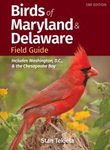About this book
Learn to identify trees in the Northeast with this handy field guide, organized by leaf type and attachment.
Make tree identification simple, informative, and productive with the field guide by award-winning author and naturalist Stan Tekiela. There's no need to look through dozens of photos of trees that don't grow in New England. Learn about 117 species found in the states of Connecticut, Maine, Massachusetts, New Hampshire, Rhode Island, and Vermont (every native tree plus common non-natives), organized by leaf type and attachment. Just look at a tree's leaves, then go to the correct section to learn what it is. Fact-filled information contains the particulars that you want to know, while full-page photographs provide the visual detail needed for accurate identification.
This book features:
- 117 species: Every native tree plus common non-natives
- Easy to use: Thumb tabs show leaf type and attachment
- Compare feature: Decide between look-alikes
- Stan's Notes: Naturalist tidbits and facts
- Professional photos: Crisp, stunning full-page images
Grab the Trees of New England: Field Guide for your next outing – to help ensure that you positively identify the trees that you see.
Contents
Introduction
Silhouette Quick Compares
Needle and Leaf Quick Compares
Sample Page
The Trees
- Single needles
- Clustered needles
- Scaly needles
- Simple, oppositely attached leaves
- Simple, alternately attached leaves
- Lobed, oppositely attached leaves
- Lobed, alternately attached leaves
- Compound, oppositely attached leaves
- Compound, alternately attached leaves
- Twice compound, alternately attached leaves
- Palmate compound, oppositely attached leaves
Glossary
Checklist/Index
About the Author
Customer Reviews
Biography
Naturalist, wildlife photographer, and writer Stan Tekiela is the author of more than 190 field guides, nature books, children's books, and playing cards, presenting many species of birds, mammals, reptiles, amphibians, trees, wildflowers, and cacti in the United States. With a Bachelor of Science degree in Natural History from the University of Minnesota and as an active professional naturalist for more than 30 years, Stan studies and photographs wildlife throughout the United States and Canada. He has received various national and regional awards for his books and photographs. Also a well-known columnist and radio personality, his syndicated column appears in more than 25 newspapers and his wildlife programs are broadcast on a number of Midwest radio stations.


































